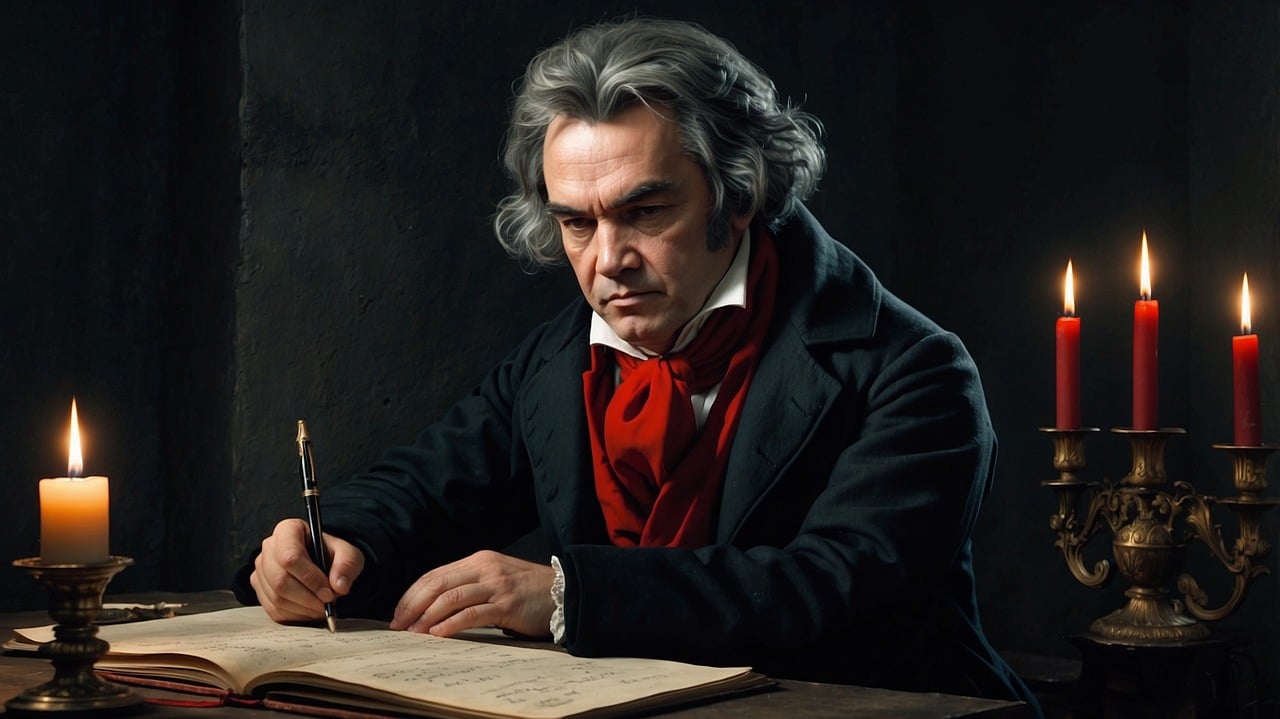
Ludwig van Beethoven was a towering figure in the realm of Western classical music and one of the most renowned composers in history. Born in Bonn, Germany, in December 1770, his story from a young pianist to revolutionary composer is about resolute determination, ingeniousness, and defying the odds. What follows is an account of his life, based on verifiable facts alone.
Early Life and Musical Beginnings
Beethoven showed musical genius very early in his life. His father, Johann van Beethoven, was a court musician and recognized his son’s gifts early on. Hoping to turn out another Mozart, Johann pushed Ludwig into intensive training in music. His methods were cruel, forcing his son to practice late into the night with punishments for mistakes. Yet, even so, the talent of Ludwig continued to grow.
At the age of seven, Beethoven appeared in his first public performance, but his father billed him as six, probably because he wanted people to think that he was another Mozart child prodigy. In his early teens, he studied with Christian Gottlob Neefe, who acquainted him with the music of Johann Sebastian Bach and, in 1782, helped him publish his first composition, a set of piano variations.
Move to Vienna and Early Success
In 1792, Beethoven moved to Vienna, the cultural hub of Europe, to study with Joseph Haydn. The city was abuzz with music, and Beethoven’s piano virtuosity quickly earned him patronage from nobles and admiration from the public. His early compositions, such as the Op. 1 piano trios, showed his skill and innovation.
Although influenced by Haydn and Mozart, Beethoven’s music was unique in that it was filled with emotional depth and structural complexity. By the turn of the century, he enjoyed recognition as one of the finest composers and pianists in Vienna.
The Onset of Deafness
Hearing problems beset Beethoven from his late twenties onward. The condition worsened by 1801, at which time he wrote to his friends to express his anguish. To be sure, the affliction was most cruelly visited upon a musician who needed his ears to provide for himself.
Yet his creativity was flying high. During this period, often referred to as his “Heroic Phase,” he wrote some of his most renowned pieces: the Third Symphony (“Eroica”), the Fifth Symphony, and the “Moonlight” Sonata. His determination to create music, even as his hearing deteriorated, became a defining aspect of his legacy.
The Heiligenstadt Testament
During his stay in the village of Heiligenstadt in 1802, Beethoven wrote to his brothers what is now called the Heiligenstadt Testament. He spoke of his pain because of his deafness and thought of ending his life. He wanted to go on living only for his art. And in this, he makes a decision that would bring a change: he embraces his destiny as a composer with more determinacy.
Revolutionary Music
Beethoven’s music was boundary-pushing. His works often flouted convention, extending the emotional and structural possibilities of the music. The “Eroica” Symphony was a groundbreaking work, one that was originally dedicated to Napoleon Bonaparte to represent heroism and struggle. When Napoleon declared himself emperor, Beethoven famously scratched out the dedication, saying that Bonaparte was no longer the hero he admired. His later works, the Ninth Symphony, the “Hammerklavier” Sonata, and the late string quartets, were still more innovative. The last movement of the Ninth Symphony, with Friedrich Schiller’s “Ode to Joy,” is among the best-known pieces in classical music; it’s a celebration of universal brotherhood.
Personal Struggles
The private life of Beethoven was quite turbulent. He never married, though he had a number of loves in his life. His “Immortal Beloved” letter, written to an unknown woman, shows how much he longed for the companionship of a woman. Scholars still argue over the question of who this mystery figure could have been.
He also had a poor relationship with his family, particularly his nephew Karl. Beethoven eventually took custody of Karl after a protracted legal battle but was a constant source of conflict throughout their relationship. These personal battles, together with his increasing ill health and enforced isolation brought about by his deafness, made his last years difficult ones.
The Deaf Composer
By the time he premiered his Ninth Symphony in 1824, Beethoven had absolutely no hearing. As the orchestra finished, its applause faced his back – standing as he was by them – and one had to turn him around towards them to see the celebration of the ovation in order to take the bowed tributes of the wildly receptive audience. At this point in his life, one finds it incredible that someone of his stature could work with a genre of music only by ear.
Legacy and Influence
Beethoven died after a long illness on March 26, 1827. Tens of thousands attended Beethoven’s funeral in Vienna – proof that he had indeed made his mark upon the world of music. His influence extends long past his lifetime. Beethoven was a bridge between the Classical and Romantic Eras. Beethoven was one of the main inspirations for Brahms, Wagner, and Mahler. His music represents its expression, creative use of instruments, and universality.
The life of Ludwig van Beethoven in itself is a miracle of persistence and creativeness: personal adversities, deep loneliness, and the loss of the most important of his five senses did not prevent him from writing music that still today inspires and moves humankind. This is not just a genius musician’s story but rather one about a human who triumphed over everything that got in his way.







